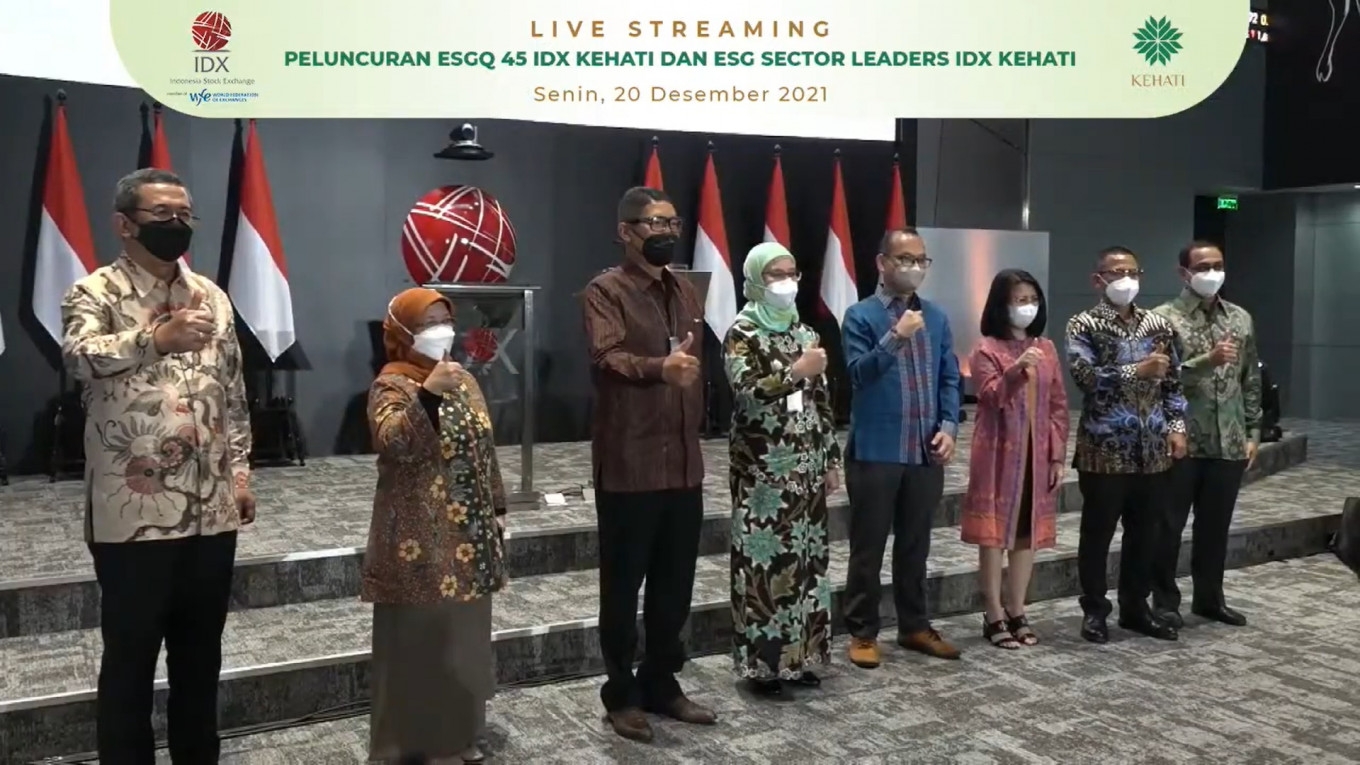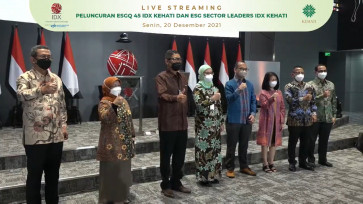Popular Reads
Top Results
Can't find what you're looking for?
View all search resultsPopular Reads
Top Results
Can't find what you're looking for?
View all search resultsCompliance with ESG principles means profits
In Indonesia, disclosure of environmental awareness by corporations in sustainability reports has increased fivefold in the past 10 years.
Change text size
Gift Premium Articles
to Anyone
 Indonesia Stock Exchange (IDX) president director Inarno Djajadi (third left) and Kehati Foundation executive director Riki Frindos (third right) during the launch of Environmental, Social and Governance (ESG) Sector Leaders IDX KEHATI and ESG Quality 45 IDX KEHATI index at the Indonesia Stock Exchange building on Dec. 20, 2021. (Indonesian Stock Exchange (IDX) YouTube channel/-)
Indonesia Stock Exchange (IDX) president director Inarno Djajadi (third left) and Kehati Foundation executive director Riki Frindos (third right) during the launch of Environmental, Social and Governance (ESG) Sector Leaders IDX KEHATI and ESG Quality 45 IDX KEHATI index at the Indonesia Stock Exchange building on Dec. 20, 2021. (Indonesian Stock Exchange (IDX) YouTube channel/-)
I
ssues of the green economy, environmental management and climate change have become mainstream in recent years. At the same time, at the corporate level, especially in the manufacturing (industrial) sector, environmental risk management is vital.
The mismanagement of risks can threaten the achievements of the climate action agenda nationally as well as the sustainability of a company. Data show that the industrial sector contributes around 16.3 percent of gross domestic product (GDP), 71.09 percent to non-oil and gas exports and 37.8 percent to investment.
However, the industrial sector's contribution is also followed by a large amount of emissions. In 2022, emissions from the industrial sector reached 238.1 million tonnes of CO2 equivalent, or 8-20 percent of total national emissions. This situation urges policymakers to decarbonize the industrial sector, including increasing environmental awareness in industrial corporations. But corporations are more concerned about productivity and profitability.
To manage these risks, an effective and integrated environmental risk management system (ERMS) that is needed as part of the corporation's operational policy.
An ERMS can help corporations to identify market opportunities in developing new business lines and new products, market share expansion and receiving funding support in achieving the Sustainable Development Goals (SDGs). The use of integrated digital information system technology can also be an enabling factor as well as a game changer in implementing ERMS.
Among many corporations, environmental awareness is still low, with companies considering the environmental regulations an additional burden and cost in their pursuit of profit. To encourage industry to implement an ERMS and realize the concept of green industry, the government through various ministries and institutions has developed policies, both fiscal and non-fiscal.
However, the policies provided are still not centralized, overlap and do not encourage competition. At the corporate level, public companies in Indonesia have been encouraged to disclose their aspects of environmental management.


















